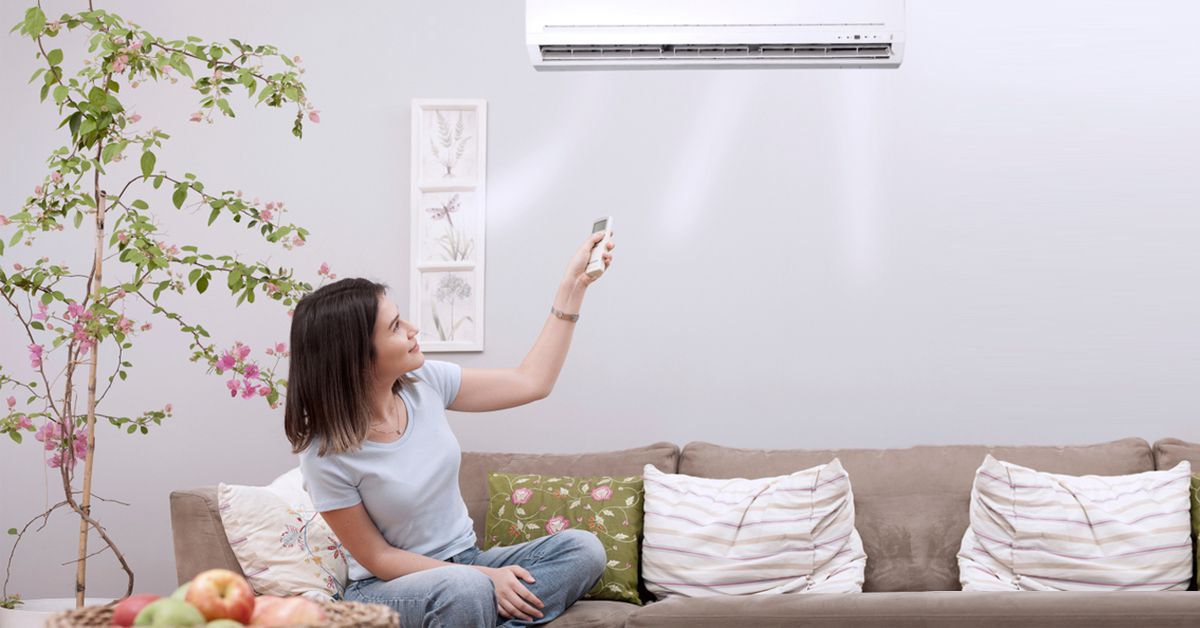As the mercury rises and the sweltering heat of summer bears down on us, the trusty air conditioner in our homes becomes our best friend. It’s that faithful appliance that keeps our indoor spaces cool and comfortable. However, just like any other appliance, air conditioners have a lifespan, and there comes a time when you should consider an upgrade. In this article, we will explore the signs that indicate it might be time to bid farewell to your old AC unit and welcome a more efficient and effective cooling solution into your life.
Understanding the Importance of Your Air Conditioner
Before we delve into the signs that it’s time for an upgrade, let’s briefly understand why your air conditioner is so crucial. Apart from providing comfort during scorching summers, an efficient air conditioning system also contributes to better indoor air quality, reduces humidity, and can even increase productivity and sleep quality. So, it’s more than just a machine; it’s an investment in your well-being.
Signs That Your Air Conditioner Needs an Upgrade
Age of the System
Air conditioners, like all machines, have a finite lifespan. Most AC units have an average lifespan of 10 to 15 years. If your air conditioner is nearing or surpassing this age, it’s a strong indicator that it might be time to consider a replacement.
Frequent Breakdowns
Is your old air conditioner constantly in need of repairs? If you find yourself calling the technician frequently to fix various issues, it’s a clear sign that your AC unit is on its last legs. The cost of multiple repairs can quickly add up and become a significant financial burden.
Rising Energy Bills
Have you noticed a steady increase in your energy bills despite using your air conditioner as usual? Older units tend to be less energy-efficient, and as they age, they consume more electricity to deliver the same cooling effect. Upgrading to a newer, energy-efficient model can save you money in the long run.
Inconsistent Cooling
If certain rooms in your home feel like Antarctica while others resemble a sauna, your air conditioner may no longer be distributing cool air evenly. This inconsistency can be a sign of a declining AC system that struggles to maintain a consistent temperature throughout your home.
Strange Noises and Odors
Unusual sounds like banging, hissing, or clanging coming from your AC unit should not be ignored. Likewise, if your air conditioner emits foul odors, it could indicate a problem with the system’s components or the growth of mold and mildew. These issues can affect your indoor air quality and your comfort.
Lack of Modern Features
Modern air conditioning systems come equipped with advanced features such as programmable thermostats, smart technology integration, and energy-saving modes. If your current system lacks these features, upgrading to a newer model can provide you with greater convenience and energy savings.
Benefits of Upgrading Your Air Conditioner
Energy Efficiency
Newer air conditioners are designed to be more energy-efficient, which not only reduces your environmental footprint but also lowers your utility bills. Energy-efficient models often have higher SEER (Seasonal Energy Efficiency Ratio) ratings, which means they cool your home using less electricity.
Improved Comfort
Upgrading to a modern air conditioner ensures consistent cooling throughout your home. No more battling hot spots or cold drafts; you’ll enjoy a comfortable environment in every room.
Cost Savings
While the initial cost of a new air conditioner may seem daunting, the long-term savings on repairs and energy bills can make it a financially savvy decision. Plus, many governments offer incentives and rebates for upgrading to energy-efficient appliances.
Enhanced Indoor Air Quality
Newer air conditioning systems often come with advanced filtration and purification features, ensuring that the air you breathe is cleaner and healthier. This is particularly beneficial for individuals with allergies or respiratory issues.
Conclusion
Your air conditioner is more than just a cooling system; it’s a vital component of your home that contributes to your comfort and well-being. If you’ve noticed signs of age, frequent breakdowns, rising energy bills, or inconsistent cooling, it might be time to consider an upgrade. Investing in a modern, energy-efficient air conditioner not only ensures your comfort but also leads to cost savings and improved indoor air quality. Make the upgrade today and enjoy a cooler, more comfortable, and healthier home environment.
FAQs (Frequently Asked Questions)
How long should an air conditioner last?
The average lifespan of an air conditioner is 10 to 15 years. However, regular maintenance and usage patterns can affect its longevity.
Can I replace my old air conditioner with a more energy-efficient model?
Yes, upgrading to a more energy-efficient air conditioner can lead to significant cost savings on your energy bills and is a wise investment in the long run.
Are there government incentives for upgrading to energy-efficient appliances?
Many governments offer incentives, tax credits, and rebates for homeowners who upgrade to energy-efficient appliances. Check with local authorities for available programs.
How can I improve the indoor air quality in my home with a new air conditioner?
Newer air conditioning systems often come with advanced filtration and purification features, which can help remove allergens and improve indoor air quality.
Is professional installation necessary when upgrading my air conditioner?
Yes, it’s essential to have a professional HVAC technician install your new air conditioner to ensure it operates efficiently and safely.

